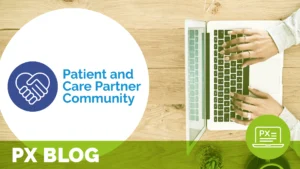The value of community psychiatric services for the elderly’s dementia caregiver group: Exploring the perspectives of participants

Community Psychiatric Services for the Elderly (CPSE) at a large teaching hospital in Toronto has offered a monthly support group for caregivers of persons with dementia for over 30 years. Participants were surveyed in January 2018 about group attendance, benefits of attending the group, and areas for improvement. Results are shared in this case study. A total of 8 participants responded to the survey with a response rate of 47%. The feedback was predominantly positive. The most prevailing theme that emerged from the survey responses was group members’ appreciation for the opportunity to meet with one another to discuss relevant issues and gain support from the facilitator and each other. Feedback from the survey also revealed opportunities for improvement on how the group could be better facilitated to elicit more equal participation from all group members. Formally assessing the value of the group from the perspectives of participants confirmed that the group is a safe place for dementia caregivers to get support and a valuable way to access knowledge from dementia care experts. COVID-19 has fostered evolution of the group from in-person to virtual meeting, opening opportunities for more feedback from members to help create the future of the dementia caregiver support group.
Related content
-
 Patient Family & Community Engagement
Patient Family & Community EngagementMy Life, My Story and Life Recovery among Veterans with Substance Use Problems
The United States Veterans Health Administration My Life, My Story (MLMS) program is a patient-centered care intervention where veterans are interviewed about their life story and may grant permission to include it in their electronic health record (EHR). Our purpose was to focus on a sample of MLMS narratives from veterans with self-disclosed substance use
Learn more -
 Patient Family & Community Engagement
Patient Family & Community EngagementHope for Healthcare
Members of The Beryl Institute’s Global Patient and Family Advisory Board wish you happy holidays. As 2024 draws to a close, we asked our members to jot down their hopes for healthcare as we welcome the upcoming new year. Tony Serge: My hope for healthcare is for leadership, providers, and staff to work together with
Learn more -
 Patient Family & Community Engagement
Patient Family & Community EngagementModeling Mutual Respect in Healthcare
By Kathy Saldana, MA, CPXP Imagine you have an interview for a job you really need. In fact, you won’t be able to pay your bills if you don’t get this job. Before entering the interview, you send a note to the interviewer that reads, “I have zero tolerance for disrespect. You will be removed
Learn more
